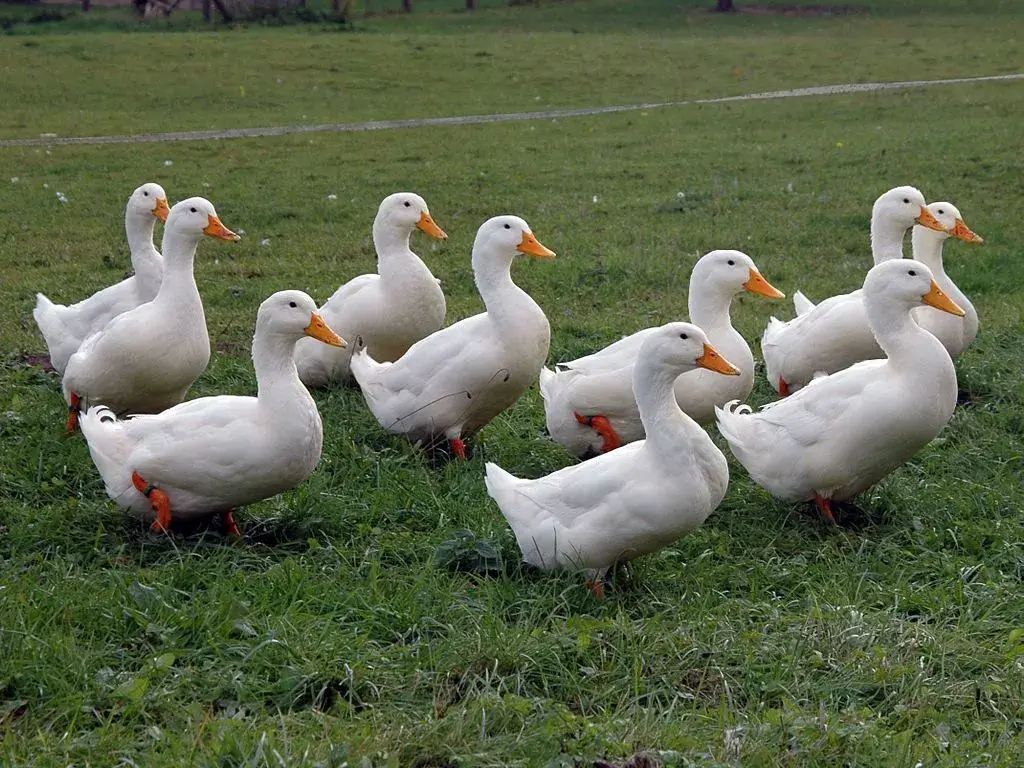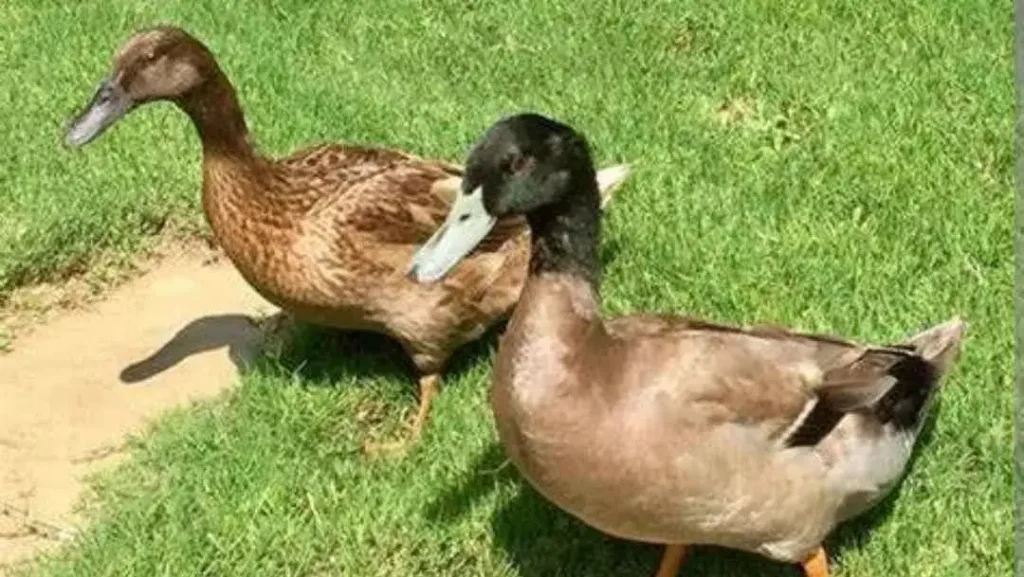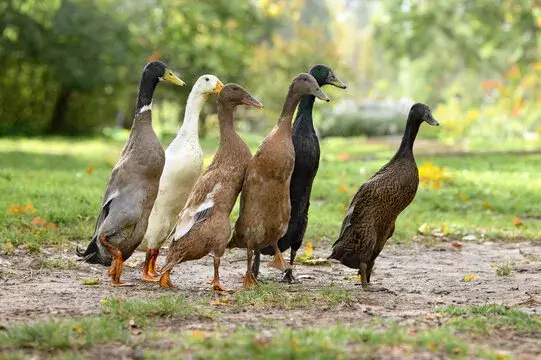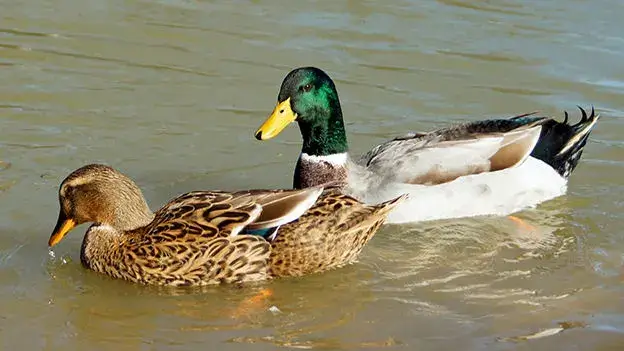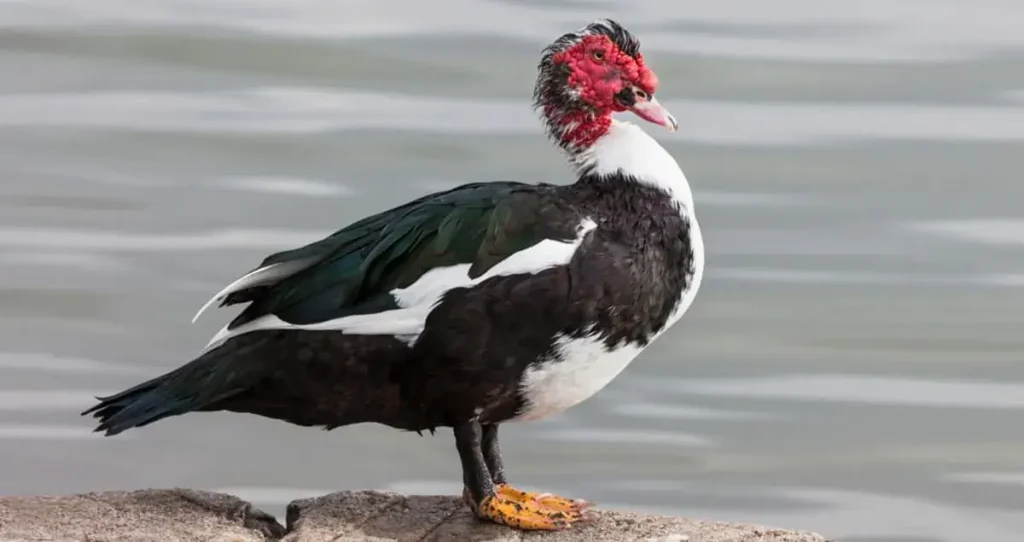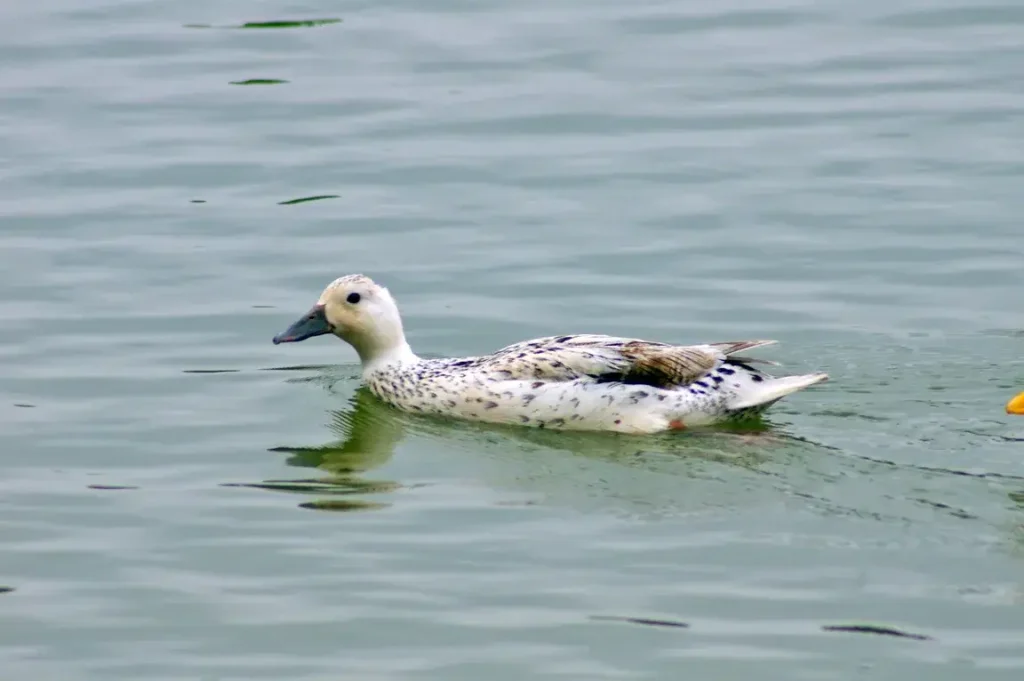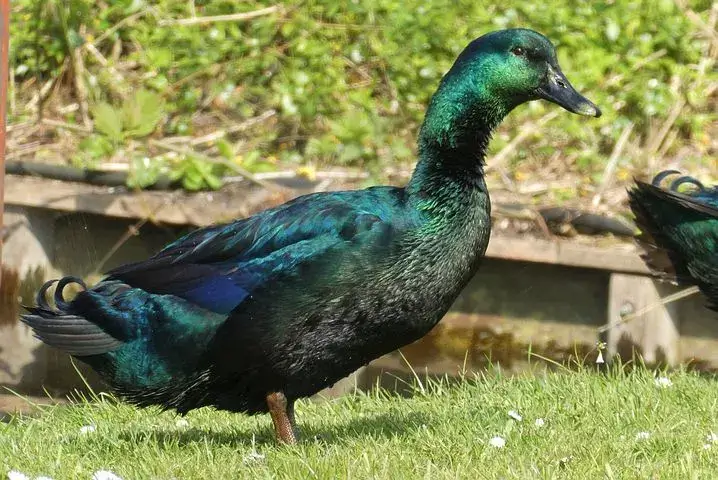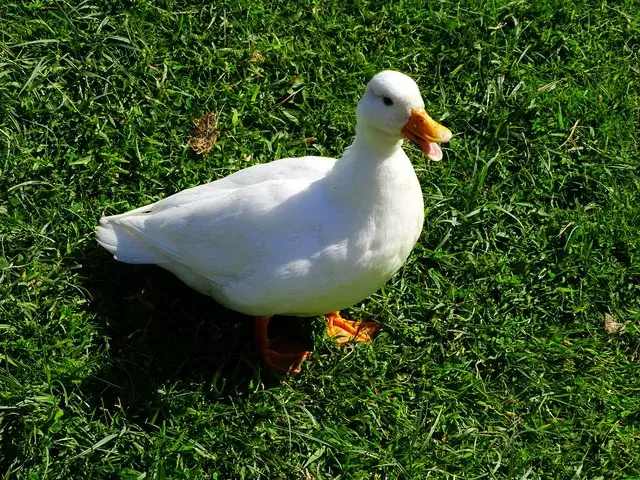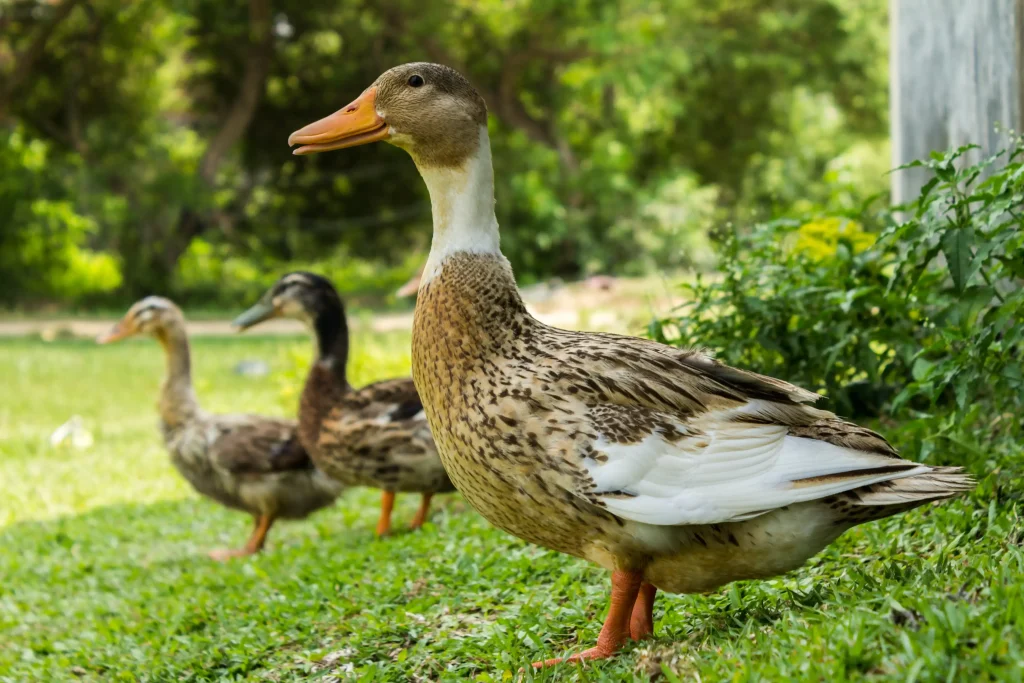🦆 Pekin Duck (American Pekin) – The All-American Waterfowl
🌟 Introduction to the Pekin Duck
The Pekin Duck, also known as the American Pekin, is one of the most recognized and widely raised domestic duck breeds in the world. With its striking white plumage, calm demeanor, and fast growth rate, this duck has become a staple in both backyard flocks and commercial farms across the United States and beyond. Whether you’re a farmer, hobbyist, or animal lover, the Pekin Duck is a charming and productive companion. 🦢
📚 History and Origin
The roots of the Pekin Duck go back centuries:
- 🇨🇳 Originally bred in China over 2,000 years ago and called the “White Pekin”
- 🛳️ Brought to the United States in 1873 by James E. Palmer from Beijing (then known as Peking)
- 🇺🇸 Selectively bred in the U.S. to create the American Pekin – larger and more upright than the original Chinese version
- 🎖️ Admitted into the American Poultry Association’s Standard of Perfection in 1874
🕊️ Physical Characteristics
Peking Ducks are known for their iconic, eye-catching appearance:
- ⚪ Plumage: Pure white feathers with a thick, soft texture
- 🧡 Bill: Broad, orange, and slightly flattened – perfect for foraging
- 🦶 Legs: Orange legs set slightly back on the body, giving them an upright posture
- 📏 Size: Adult drakes (males) weigh around 9–11 pounds; hens (females) about 8–10 pounds
- 👁️ Eyes: Blue to hazel, with an alert yet gentle expression
🥚 Egg Production and Laying Habits
While not primarily raised for eggs, Pekin Ducks can still be good layers:
- 🥚 Lays 150–200 large white eggs per year under ideal conditions
- 🌤️ Peak laying season is during spring and summer
- ⏰ Begin laying at around 5–6 months of age
- 🪺 Not known for strong brooding instincts, so artificial incubation is often used
🍽️ Meat Quality and Commercial Use
The Pekin Duck is the #1 meat duck in the world – and for good reason:
- 🍗 Tender, mild-flavored, and lean meat with a light color
- 🚀 Fast-growing – reaches market weight (around 7 lbs) in just 6–8 weeks
- 🏆 Accounts for nearly 95% of duck meat consumed in the U.S.
- 🧑🍳 Popular in Chinese-American cuisine, especially Peking-style dishes
🧠 Temperament and Behavior
Peking Ducks are loved for their docile and friendly nature:
- 💖 Calm, non-aggressive, and social – great for families and children
- 🎶 They’re vocal but not overly noisy
- 👨🌾 Easily trained to follow routines and recognize caretakers
- 🫶 Prefer being in groups and enjoy foraging in grassy areas
🏡 Housing and Care Requirements
Raising Pekin Ducks is fairly simple with proper planning:
- 🏠 Provide a clean, dry coop with good ventilation
- 💦 Access to clean drinking water and a shallow pond or kiddie pool for bathing
- 🍃 Ample foraging space with grass or grain-fed diets for best health
- 🧹 Regular cleaning of the duck house to prevent foot and respiratory issues
🌱 Feeding and Nutrition
Peking Ducks thrive on a balanced diet:
- 🥬 Leafy greens, grains (like corn and wheat), and commercial duck pellets
- 🪱 They enjoy insects, worms, and small aquatic animals when foraging
- 🍼 Ducklings should be fed high-protein starter feed for the first few weeks
- 🚫 Avoid feeding bread or processed human foods
🧬 Breeding and Genetics
Selective breeding has led to several desirable traits:
- 🧪 Uniform body shape and rapid growth in commercial strains
- 🧑🌾 Backyard breeders often focus on health and longevity over speed
- 🪺 Fertility is generally high, with artificial incubation improving hatch rates
⚖️ Common Health Issues
Like all domesticated animals, Pekin Ducks have some health concerns:
- 🦶 Bumblefoot (foot infections) from wet bedding or rough surfaces
- 💧 Wet feather issues if they can’t preen properly or lack bathing access
- ⚖️ Obesity if overfed without enough activity
- 💊 Preventative care, clean housing, and fresh water reduce most risks
📊 Differences Between American Pekin and Chinese Pekin
| Feature | American Pekin | Chinese Pekin |
|---|---|---|
| Posture | More upright | Horizontal, natural duck shape |
| Size | Larger (8–11 lbs) | Smaller (4–6 lbs) |
| Use | Meat production | Egg laying and ornamental |
| Temperament | Very calm | More active |
| Color | Pure white with an orange beak | White or cream with a lighter bill |
🎉 Fun Facts About the Pekin Duck
- 📺 The Aflac insurance mascot is modeled after a Pekin Duck!
- 🎭 Many cartoon ducks like Donald Duck are inspired by this breed
- 💦 They love water but don’t need a pond to thrive
- 🚜 They’ve been farmed in the U.S. for over 150 years
🌎 Global Popularity and Presence
The Pekin Duck isn’t just popular in the U.S.:
- 🇫🇷 Used in traditional French duck dishes like confit
- 🇨🇳 Still raised in China, though often outnumbered by Chinese-native ducks
- 🇧🇩 Commonly seen in Bangladesh, where they are crossed with local breeds
- 🌍 Exported worldwide for both commercial and backyard use
🤝 Benefits of Raising Pekin Ducks
- 🥩 High meat yield with excellent taste and texture
- 🏡 Suitable for beginners and family farms
- 🌿 Contribute to pest control through foraging
- 🐣 Entertaining and educational for children
❓ Frequently Asked Questions
Q1: Are Pekin Ducks good pets?
A: Yes! Pekin Ducks are gentle, friendly, and easy to care for. They’re great for families and children, though they do require outdoor space and fresh water access.
Q2: Can Pekin Ducks fly?
A: No. Due to their large size and small wings, Pekins cannot fly. This makes them easier to manage and less likely to escape your yard.
Q3: How long do Pekin Ducks live?
A: On average, Pekin Ducks live about 5–10 years with proper care. Ducks raised for meat are usually processed at 6–8 weeks, but backyard ducks often live longer.
Q4: Do Pekin Ducks need a pond?
A: While they love swimming, a small kiddie pool or tub is sufficient. Clean water is more important than a large pond.
Q5: What is the difference between a Pekin Duck and a Mallard?
A: Pekin Ducks are domestic, larger, and white with orange bills, while Mallards are wild, smaller, and have the classic green-headed male and brown female plumage.
🌟 Conclusion – A Feathered Friend for All Purposes
The American Pekin Duck is a true all-rounder: a reliable source of meat, a friendly backyard companion, and a charming addition to any homestead or farm. With its calm nature, quick growth, and manageable care needs, it’s easy to see why this breed continues to win hearts and serve communities around the world. Whether you’re raising ducks for food or friendship, the Pekin Duck delivers on every front. 🦆💚🌾
